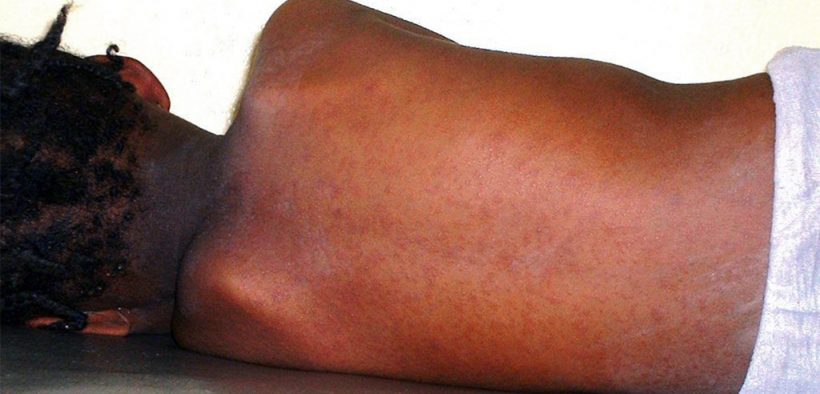Texas Fears Lax Vaccine Laws Means a Measles Outbreak Looms

A Texas law allowing for a conscientious exemption to vaccines is worrying Texas officials that a measles outbreak is on the horizon.
Health officials in Texas are closely watching several parts of the state for fear of looming measles outbreaks. So far, the state has only reported 15 confirmed measles cases, so why all the hoopla?
In part, it is because nationwide measles cases have hit a 25-year high. But the real reason Texas officials are concerned is that the number of parents who have requested vaccine exemptions has hit an all time high.
Texas has a very broad vaccine exemption law; it is one of 16 states that allow parents to claim a conscientious exemption to the vaccine. Without needing to list the reason for the exemption – be it religious or otherwise – parents can still enroll their children in school. Texas law used to be much stricter, but in 2003 a state senator proposed the conscientious objection amendment. Now retired, the same state senator says his own law should be revisited given the current threat to public health. At the time, Texas legislators were merely trying to give their citizens more religious freedom, never dreaming they might one day be contributing to a public health crisis.
Several states have ended the conscientious exemption clause, including California, which experienced a Disneyland measles outbreak in 2015, Mississippi and West Virginia. In May, Washington State also ended it due to the state’s own measles outbreak of 70 reported cases. These states will only accept medical exemptions which must be signed by a physician.
Baylor College of Medicine’s Dr. Peter Hotez is the dean of the National School of Tropical Medicine and well-respected in his field and one of the nation’s most recognized vaccine advocates. He warns that Texas will soon experience a terrible measles epidemic, very similar to what New York is experiencing now – in April, New York declared a public health emergency due to a measles outbreak in Brooklyn. Hotez told the Texas Tribune that the Lone Star State has “dodged a bullet” so far, but that a measles outbreak is only a matter of time.
Holes in the Data
Although Texas schools are obligated to report vaccine exemption rates, reports are inconsistent. Officials think that over two percent of all Texas kindergarteners have been exempted. As the Texas Tribune reported, some private schools have exemption rates of over 50% for all students.
Officials like Hotez are concerned about the loss of herd immunity, meaning that a sufficient number of people in a community must be immunized in order to prevent the disease from rapidly spreading. Measles is highly contagious, and as such, must have a 95% herd immunity to keep the disease at bay. Data from some schools in Texas suggest certain communities may be falling below the threshold.
What a Change 15 Years Makes
In 2003, at the time of the Texas amendment to the law, the discussion around measles was very different than it is today. Measles was not even on the radar screen; three years earlier in 2000, the disease had been declared eliminated from the United States. There was growing concern about vaccines at the time, particularly related to the preservative thimerosal which contained trace amounts of mercury. Thimerosal was widely used in multidose vaccines to prevent cross-contamination.
As is typical in these cases, there was conflicting data regarding thimerosal and that only added to the fear. In 1999, the U.S. Food and Drug Administration found no evidence that mercury in thimerosal caused any harm, although in certain isolated cases, they had found mercury levels to exceed World Health Organization exposure standards. Shortly thereafter, in 2001, vaccine manufacturers removed thimerosal from all vaccines given to children under age 6, except for the flu vaccine.
In addition to the thimerosal concerns, the MMR (measles/mumps/rubella) vaccine was specifically linked to autism in a now-discredited study by British scientist Andrew Wakefield who lost his medical license in 2010. That study, however, fueled the increasing fear of vaccines.
Therefore, the success of Texas’ 2003 amendment was largely due to the fearful climate of the day. As of 2018, state data shows that more than 75,000 parents have exemptions – a tenfold increase since the law became effective in 2003. In particular, numbers have grown since 2015, when the anti-vaccine movement became mainstream.







